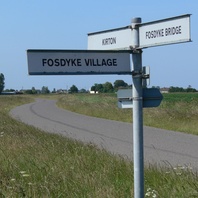
Viking Names
Fosdyke
Fosdyke, in the Kirton Wapentake of Lincolnshire, comes from the Old Norse male personal name Fótr and Old Norse element dík ‘a ditch, a water-channel’. The same personal name occurs in other place-names in Lincolnshire: Foston and Fotherby as well as possibly in Foston, Derbyshire.
Read More

Viking Names
Southorpe
Southorpe, in the Corringham Wapentake of Lincolnshire, is recorded in Domesday Book as a simplex name from Old Norse þorp ‘a secondary settlement, a dependent outlying farmstead or hamlet’. The prefix was added later to distinguish it from Northorpe.
Read More

Viking Names
Walesby
Walesby, in the Bassetlaw Wapentake of Nottinghamshire, comes from the Old Norse male personal name and nickname Valr which denotes ‘hawk’ and the Old Norse element by ‘a farmstead, a village’.
Read More
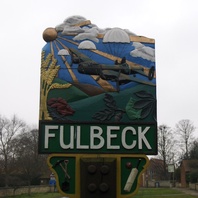
Viking Names
Fulbeck
Fulbeck, in the Loveden Wapentake of Lincolnshire, is an Anglo-Scandinavian hybrid formed from Old English fūl ‘foul, dirty’ and Old Norse bekkr ‘stream, a beck’, which likely replaced Old English broc, ‘brook’ based on earlier forms of the place-name.
Read More

Viking Names
Bretby
The first element of Bretby, in the Repton and Gresley Hundred of Derbyshire, comes from either the Old Norse ethnonym Bretar ‘Britons’ or its Old English cognate, Brettas. The second element of the place-name is Old Norse bý ‘a farmstead, a village’. Traditionally, the place-name has been interpreted as referring to Britons who accompanied the Scandinavians in their settlements. However, the exact implications of such a name are not yet fully understood and are the subject of ongoing work by Dr Jayne Carroll of the Institute for Name-Studies, University of Nottingham.
Read More
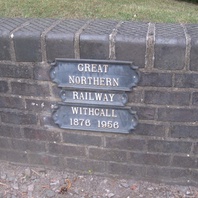
Viking Names
Withcall
Withcall, in the Louth Eske Wapentake of Lincolnshire, is a Scandinavian compound from Old Norse viðr ‘a wood; or a tree, a tree-trunk’ and Old Norse kjǫlr ‘a keel, a ridge (of hills)’, which is topographically appropriate.
Read More
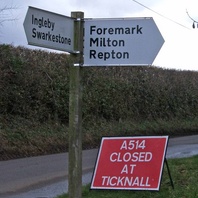
Viking Names
Ingleby
Ingleby, in the Repton and Gresley Hundred of Derbyshire, takes its name from the Old English ethnonym Engle ‘the Angles, later the English’ and Old Norse by ‘a farmstead, a village’. There is also an Ingleby in Lincolnshire (historically Yorkshire). This Ingleby is close to the Viking winter camp at Repton, and the site of a unique Viking Age cremation cemetery. The exact implications of such a name are not yet fully understood and are the subject of ongoing work by Dr Jayne Carroll of the Institute for Name-Studies, University of Nottingham.
Read More
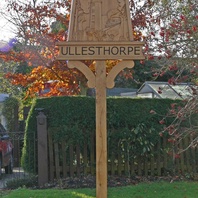
Viking Names
Ullesthorpe
The first element of Ullesthorpe, in the Guthlaxton Hundred of Leicestershire, is the Old Norse male personal name Úlfr (Old Danish Ulf), an original byname meaning ‘wolf’. It was a common name throughout the Viking diaspora. The second element is Old Norse þorp ‘a secondary settlement, a dependent outlying farmstead or hamlet’. The township names that line Watling Street and those to its north-east are predominately English in origin; however, Ullesthorpe, Catthorpe, and Bittesby are the exceptions. It is important to note that although Ullesthope has both an Old Norse specific and generic, Bitteby’s first element is Old English and Catthorpe’s is a feudal affix, which indicate only light Scandinavian settlement in the surrounding area. Ullesthorpe and Bittesby were formally a single land unit which Bittesby was later carved out. Ullesthorpe was likely the dependent village of Bittesby, and now has a narrow reach of land to its west which runs to Watling Street.
Read More
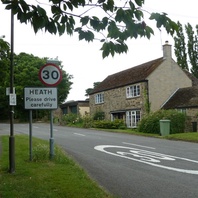
Viking Names
Heath
The eatlier name for Heath, in the Scarsdale Hundred of Derbyshire, was Lund from Old Norse lundr ‘grove, small grove’. Heath from Old English hǣð ‘heather; a tract of uncultivated land’ replaced the older name which remains only as a field name.
Read More
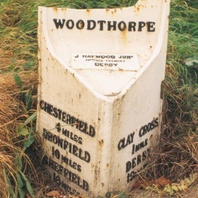
Viking Names
Woodthorpe
Woodthorpe, in the Scarsdale Hundred of Derbyshire, is an Anglo-Scandinavian hybrid name from Old English wudu ‘a wood; or wood, timber’ and Old Norse þorp ‘a secondary settlement, a dependent outlying farmstead or hamlet’.
Read More
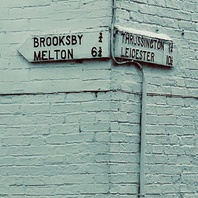
Viking Names
Brooksby
Brooksby, in the East Goscote Hundred of Leicestershire, is a difficult name. The first element is likely the Old Norse male personal name Brok which was originally a byname derived from Old Norse brók ‘breeches’. Alternatively it has been suggested that the first element is Old English broc ‘a brook, a stream (used of a stream with a muddy bed and a visible sediment load)’. This brook may refer to the River Wreake or more likely a small stream which rises near Brooksby. The first element could also be the Old Danish cognate brok ‘bog, marsh’ which is found in place-names in Denmark. However, these elements do not otherwise show a genitival structure whereas the personal name does. The second element of the name is Old Norse by ‘a farmstead, a village’.
